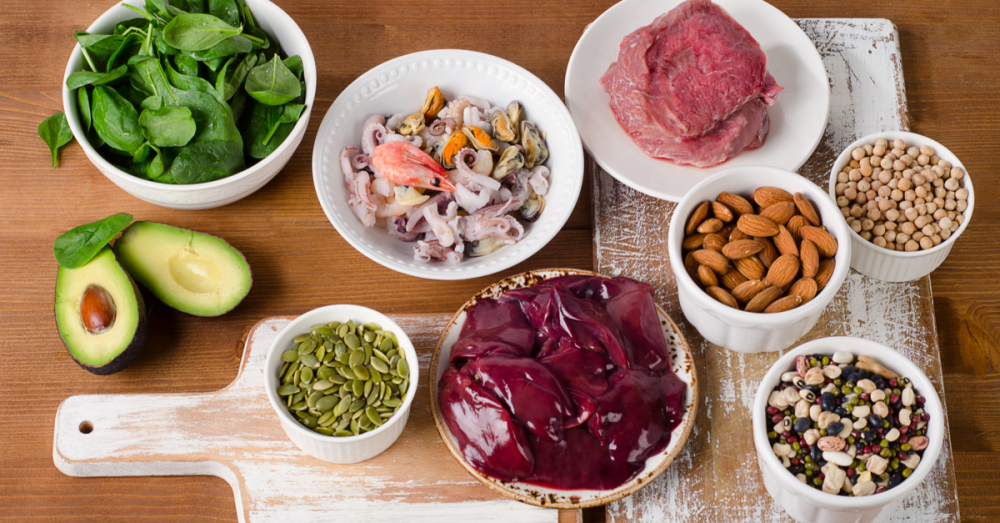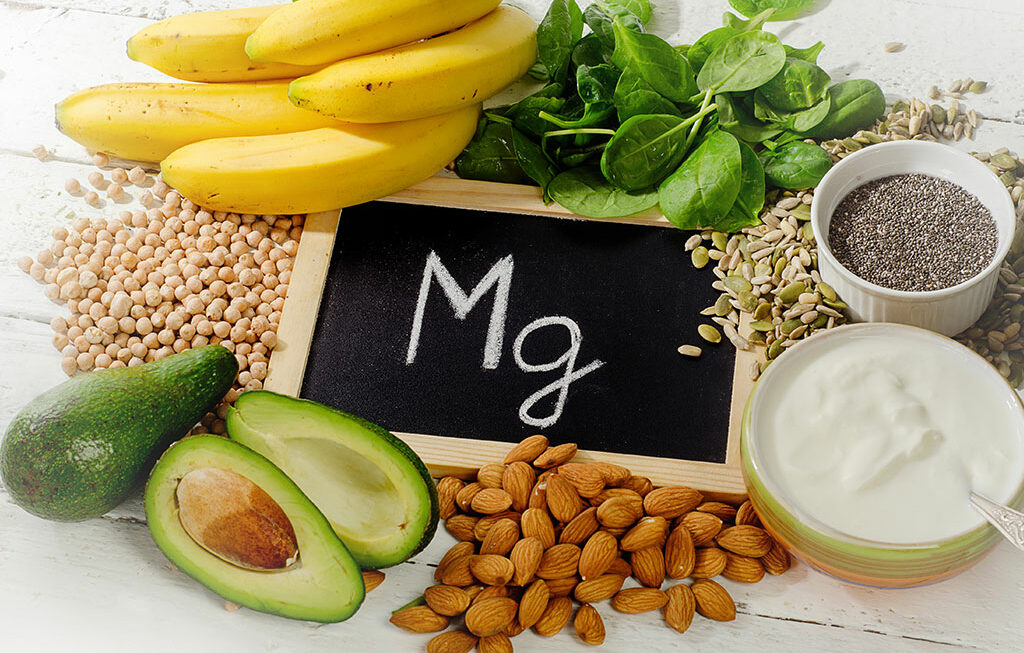Introduction
Iron, a vital mineral, is the cornerstone of numerous physiological processes that sustain life. Often recognized for its role in transporting oxygen through the bloodstream, iron extends its influence far beyond. In this comprehensive guide, we delve into the diverse and crucial benefits of iron, exploring its impact on energy production, immune function, cognitive health, and overall well-being.
Understanding Iron: The Building Block of Life
Iron is an essential trace mineral that serves as a fundamental building block for various biological functions. It is a key component of hemoglobin, the protein in red blood cells responsible for transporting oxygen from the lungs to tissues throughout the body. Additionally, iron is integral to myoglobin, found in muscles, and is a cofactor for enzymes involved in energy production and cellular metabolism.
Oxygen Transport and Cellular Respiration
The most well-known role of iron is its involvement in oxygen transport. Hemoglobin, containing iron at its core, binds with oxygen in the lungs and releases it in tissues, ensuring that cells receive the oxygen necessary for energy production. Iron’s contribution to cellular respiration extends beyond red blood cells, as it is also essential for the functioning of mitochondria, the cellular powerhouses responsible for producing adenosine triphosphate (ATP).
Prevention of Iron-Deficiency Anemia
Iron deficiency is a common nutritional disorder globally and a leading cause of anemia. Anemia occurs when the body lacks sufficient iron to produce an adequate number of healthy red blood cells. Symptoms may include fatigue, weakness, pale skin, and difficulty concentrating. Ensuring an adequate intake of dietary iron is crucial for preventing iron-deficiency anemia and maintaining optimal energy levels.
Cognitive Function and Development
Iron plays a pivotal role in cognitive function, especially during periods of rapid growth and development. In infancy and childhood, when the brain is undergoing significant maturation, iron is essential for the formation of neural connections and the development of cognitive skills. Iron deficiency during these critical stages may impair learning, memory, and overall cognitive performance.
Immune System Support
Iron is essential for the proper functioning of the immune system. Immune cells, such as lymphocytes and macrophages, require iron to carry out their roles in defending the body against infections. Iron deficiency can compromise the immune response, making individuals more susceptible to infections and impairing the body’s ability to mount an effective defense.
Energy Metabolism and Mitochondrial Function
Iron is a vital component of enzymes involved in energy metabolism. It facilitates the conversion of nutrients into energy by serving as a cofactor for enzymes in the electron transport chain, a series of biochemical reactions that take place in mitochondria. Optimal iron levels are crucial for efficient energy production, and deficiencies can lead to fatigue and a decline in overall vitality.
Muscle Function and Oxygen Storage
Myoglobin, a protein in muscles, contains iron and serves as an oxygen storage and transport molecule within muscle cells. This allows muscles to have a readily available supply of oxygen during periods of increased activity or demand. Adequate iron levels contribute to optimal muscle function, endurance, and overall physical performance.
Hormone Synthesis and Regulation
Iron is involved in the synthesis and regulation of various hormones in the body. It plays a role in the production of thyroid hormones, which are critical for regulating metabolism. Iron deficiency can impact thyroid function and contribute to disruptions in hormonal balance. Additionally, iron is involved in the regulation of growth hormone and other hormones that influence development and overall well-being.
Redox Reactions and Antioxidant Defense
Iron participates in redox reactions, a type of chemical reaction involving the transfer of electrons. While essential for various physiological processes, the redox activity of iron can also lead to the generation of reactive oxygen species (ROS). Adequate iron levels are crucial for maintaining a balance between beneficial redox reactions and preventing oxidative stress. Imbalances can contribute to cellular damage and inflammation.
Wound Healing and Tissue Repair
Iron is essential for the synthesis of collagen, a structural protein that plays a key role in wound healing and tissue repair. Collagen provides strength and structure to tissues, and adequate iron levels are necessary for the production of this crucial protein. Iron deficiency can impair the body’s ability to heal wounds and regenerate tissues, prolonging the recovery process.
Dietary Sources of Iron
Ensuring an adequate intake of dietary iron is essential for meeting the body’s requirements. Iron is found in two forms: heme iron, derived from animal sources, and non-heme iron, found in plant-based and fortified foods. Dietary sources of iron include:
- Red Meat: Beef, lamb, and pork are rich sources of heme iron.
- Poultry: Chicken and turkey provide heme iron.
- Fish: Certain types of fish, such as tuna and salmon, contain heme iron.
- Shellfish: Oysters, clams, and mussels are particularly high in heme iron.
- Beans and Lentils: Legumes are good sources of non-heme iron.
- Dark Leafy Greens: Spinach, kale, and broccoli contain non-heme iron.
- Fortified Foods: Some cereals, bread, and plant-based products are fortified with iron.
Factors Affecting Iron Absorption
Iron absorption can be influenced by various factors, including:
- Vitamin C: Consuming vitamin C-rich foods alongside iron-rich foods enhances non-heme iron absorption.
- Calcium: Calcium can inhibit the absorption of non-heme iron when consumed together.
- Phytates and Tannins: Found in certain plant foods, these compounds can reduce non-heme iron absorption.
- Meat Factor: Substances in meat enhance the absorption of both heme and non-heme iron.
- Iron Status: The body regulates iron absorption based on its current iron stores, absorbing more when levels are low and less when they are high.
Iron Deficiency: Causes and Symptoms:
Iron deficiency can result from insufficient dietary intake, poor absorption, increased demand (such as during pregnancy), or chronic blood loss. Symptoms of iron deficiency may include:
- Fatigue: Due to reduced oxygen transport and energy production.
- Pale Skin: A common sign of reduced red blood cell production.
- Weakness: Resulting from impaired muscle function.
- Shortness of Breath: Due to decreased oxygen-carrying capacity.
- Difficulty Concentrating: Impaired cognitive function is a common symptom.
Iron Supplementation: Considerations and Precautions
Iron supplementation may be recommended in cases of diagnosed iron deficiency or for individuals at risk of deficiency. However, there are considerations and precautions to keep in mind:
- Dosage: The appropriate dosage of iron supplements depends on the severity of the deficiency and individual factors. Excessive iron intake can lead to toxicity, so it’s crucial to follow healthcare professionals’ recommendations.
- Forms of Iron: Different forms of iron supplements are available, including ferrous sulfate, ferrous gluconate, and ferric citrate. The choice of form may depend on factors such as tolerability and absorption.
- Interactions with Medications: Iron supplements can interact with certain medications, including antacids, antibiotics, and medications for thyroid disorders. Consultation with a healthcare provider is advisable, especially if you are taking medications.
Conclusion: Iron – Nourishing Life’s Essential Functions
Iron, the unsung hero among minerals, stands as an indispensable element for vitality and well-being. From oxygen transport and energy production to immune support and cognitive function, the benefits of iron permeate nearly every aspect of human physiology. As we navigate the intricacies of maintaining optimal health, recognizing the importance of iron becomes paramount for sustaining life’s essential functions.
Approach iron not merely as a nutrient but as a foundational element that fuels the symphony of life within. Whether obtained through a balanced diet, strategic supplementation, or a combination of both, iron plays a central role in nurturing resilience, strength, and overall well-being. Embrace the profound benefits of iron, allowing this essential mineral to weave its intricate tapestry in the fabric of a healthy and vibrant existence.
- Benefits of Damiana Supplements - November 24, 2023
- Best Delta 10 THC Disposables Reviewed - November 24, 2023
- Benefits of Artichoke Extract Nootropics - November 24, 2023




